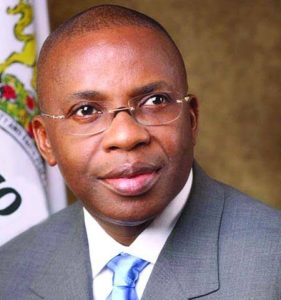
As Imo State moves toward another electoral cycle, the political atmosphere is thick with rhetoric, recycled promises, and a familiar cast of contenders. Among them is former Governor Ikedi Ohakim (2007–2011), whose name elicits both admiration and critique. But in a time when Nigeria’s democracy is in search of not just fresh faces but functional governance, Ohakim’s candidacy demands serious, sober consideration.
This is not a call for nostalgia. Rather, it is a pragmatic case for experience, evolution, and second chances in leadership.
A mixed record—but a clear vision
Ohakim’s first term was marked by bold ambition. His administration created over 30,000 jobs through the Imo Road Maintenance Agency (IROMA), employed 10,000 graduates in 2008, and hired 5,000 teachers. Infrastructure-wise, he initiated major projects like the Imo Free Way and the Inner Ring Road, while promoting rural development and environmental renewal.
Yet, his administration was not without controversy. The most significant was the 2009 N18.5 billion bond, intended to fund transformative projects such as the Oguta Wonder Lake tourism initiative. While the intent was commendable, implementation fell short, and the project remains unfinished. Allegations of financial mismanagement emerged, leading to EFCC investigations—but ultimately, no convictions followed.
Another, perhaps more damaging episode, came not from policy failure but from disinformation. In 2010, Ohakim was falsely accused of ordering the arrest and flogging of a Catholic priest. The story, spread rapidly and amplified by powerful clerical voices—including Rev. Fr. Ejike Mbaka—triggered widespread outrage in a predominantly Catholic state. The Catholic Church became a rallying point against his reelection.
Years later, Fr. Mbaka publicly recanted, admitting that the priest involved had confessed the incident was fabricated. Even more troubling, a political strategist, Austin Ajero, claimed to have orchestrated the lie as part of a campaign to discredit Ohakim and turn the Church against him. The damage, however, was already done. Ohakim lost the 2011 election, not due to corruption or poor performance, but largely due to a deliberate falsehood weaponised through the pulpit.
This saga is more than a footnote—it is a case study in how misinformation and religious influence can distort electoral outcomes. It is also a sobering reminder that public perception is not always grounded in truth.
These events should not be swept aside. But neither should they eclipse the broader picture: Ohakim governed with vision, delivered on employment, and maintained fiscal discipline—leaving N46.6 billion in state reserves, inclusive of assets in the bond market, at the end of his tenure.
Political maturity and evolution
Perhaps the most compelling argument for Ohakim’s return is not his past performance, but how he has responded to it. Over the past decade, Ohakim has not merely remained active—he has grown.
Gone is the image of a brash political player. In its place is a statesman who advocates continuity in governance and collaboration across party lines. He has publicly supported initiatives of current Governor Hope Uzodimma and emphasised the importance of finishing inherited projects. His recent political statements reflect a leader more interested in legacy and institutional memory than personal ambition.
Such political maturity is rare. In a landscape where each administration often begins by undoing the work of its predecessor, Ohakim now champions governance rooted in strategic continuity—a principle Nigeria sorely needs.
A Comparative Governance Lens
To fully appreciate Ohakim’s potential return, one must compare. His successor, Rochas Okorocha, entered office with populist flair but exited amid widespread criticism—particularly over unpaid salaries, inconsistent infrastructure development, and the dismantling of job creation frameworks like IROMA.
In contrast, Ohakim’s projects, though some remained incomplete, were strategic and geared toward long-term economic benefit. His employment policies, while not headline-grabbing, directly addressed unemployment through structured state intervention.
If governance is to be measured by vision, intent, and institutional capacity, then Ohakim’s record holds up against many of his peers.
Why Experience Now?
Nigeria faces cascading challenges: economic uncertainty, youth unemployment, a trust deficit in government, and infrastructural gaps. Imo State is no exception. These are not problems for learners or placeholders—they require leaders who understand the intricacies of statecraft and have demonstrated the capacity to act.
Ohakim’s advantage lies not only in what he did, but in what he has learned. He brings:
Institutional knowledge of Imo’s governance architecture
Established relationships with federal and development actors
Humility from past mistakes and documented willingness to do better
Political patience that signals maturity, not desperation
There is something to be said for leaders who return not with grand promises, but with measured purpose and reflective growth.
Answering the critics
Skeptics will ask: Why return to the past? The answer is clear—because experience, when paired with reflection, can outperform novelty wrapped in slogans.
Others may cite past controversies. But it is worth noting that no convictions followed the EFCC inquiries, and many allegations surfaced in politically charged moments. In Ohakim’s case, even one of the most damaging episodes—the alleged flogging of a priest—was later revealed to be a lie, crafted by political opponents and regretfully amplified by trusted religious figures.
And then there is the ultimate question: Can he win? While electoral math is always complex, Ohakim’s sustained grassroots presence, the nostalgia some hold for his tenure, and his record of service all suggest he remains a viable contender.
Final thoughts
In a time when Nigerian voters are weary of broken promises, recycled slogans, and unproven leadership, Ikedi Ohakim offers something refreshingly grounded: a documented record, an honest appraisal of past missteps, and a renewed commitment to getting governance right.
Leadership should not be about perfection, but progress. Ohakim’s evolution from ambitious governor to reflective statesman suggests a leader who not only understands the job—but who is now better prepared to deliver on it.
In the end, voters must decide not just who promises the most, but who has the capacity, humility, and vision to steer Imo State forward. Sometimes, the best way to advance is not by starting over—but by giving experience the space to finish what it started.
By:Oruruo Samuel Okechukwu






